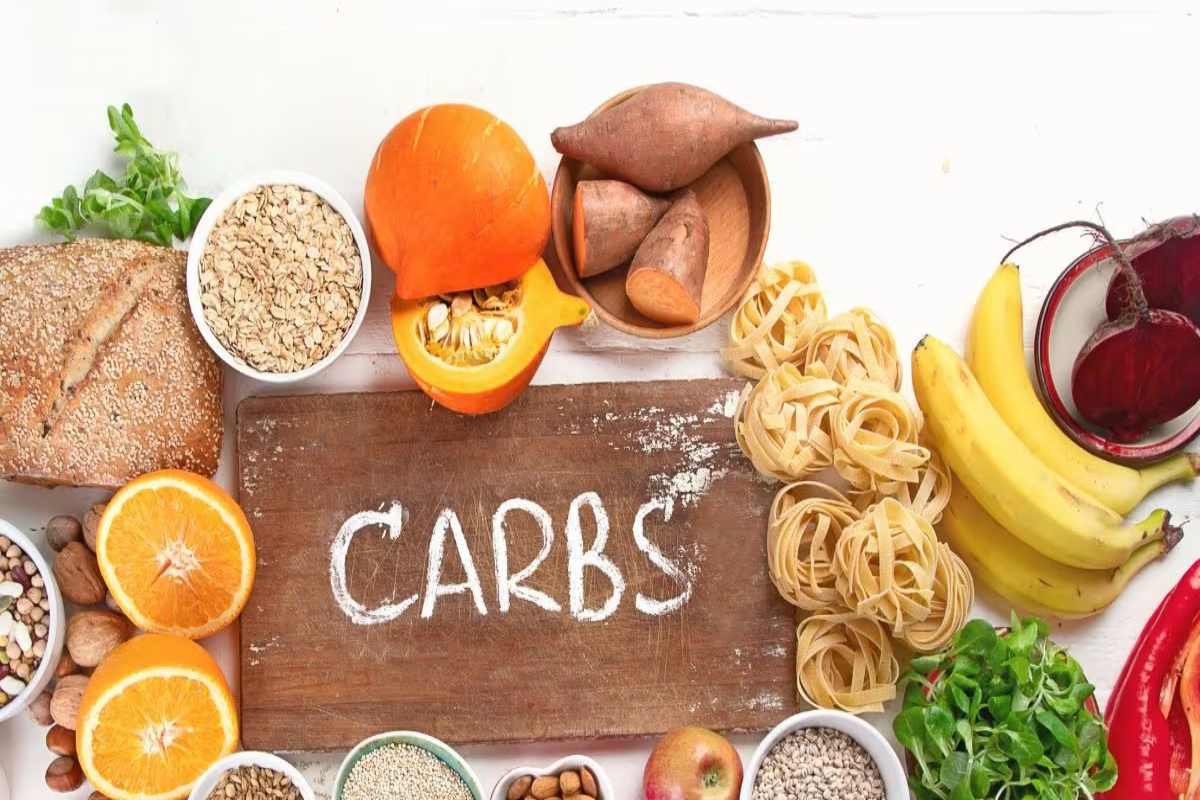The Benefits of Carbs – Many people associate carbs with junk food. It’s no wonder that carb-free, protein, and ketogenic diets are gaining popularity. But carbs are not just sugar! The body needs them to function properly. Let’s understand what carbs should be in the daily diet and how many of them are required for normal life activity.
Table of Contents
Carbohydrates Are the Main Source of Energy
Carbs are the main source of energy for the body. This energy is needed for all the cells in our body, especially glucose is important for brain function. About 25% of the energy from carbs goes to the functioning of neurons. This allows us to solve complex problems, concentrate, and memorize new information.
When 1 g of carbs is broken down, the body receives 4 kcal. About 50% of all the energy a person needs should come from carbs. The exact amount is easy to determine in a calorie/protein/fat/carb calculator by entering your parameters (age, height, weight, and activity).
Carbs and Exercise
Glucose is stored in the muscles in the form of the energy store glycogen. It’s important for active muscle function. During exercise, glycogen stores are quickly depleted and carbohydrates are needed to replenish them. If the deficit is not eliminated, the muscle won’t be able to fully contract. You won’t be able to train effectively on a carb-free diet.
In sports medicine, the norms of carbs are calculated, which are required by athletes for training of different degrees of intensity. This amount varies from 2 to 5 g/kg of body weight. One multi-hour endurance workout can completely deplete glycogen stores. During strength training, glycogen expenditure from the muscles reaches 40%. Workouts with a high number of repetitions of exercises at a moderate load are considered more energy consuming.
Simple Carbs and Where They Are Found
Simple carbs (glucose, fructose, galactose, etc.) in large quantities can be harmful to the body. They can increase the risk of cardiovascular disease, diabetes, obesity, metabolic syndrome, susceptibility to infections.
It’s the consumption of simple carbs that is recommended to limit. WHO advises reducing sugars in the diet so that they account for no over 10% of energy intake, ideally reducing this figure to 5% in the future.
Complex Carbs and Fiber
Not all carbs are simple sugars. Complex carbs take a long time to break down and the glucose from them is slowly absorbed into the bloodstream. These are healthy foods with a low glycemic index. They are exactly what our body needs for energy.
Fiber is also a carb. It’s necessary for the normal functioning of the gastrointestinal tract, the immune system. WHO recommends consuming at least 25 g of fiber per day.
Get it from vegetables, fruits, nuts, legumes. Cucumbers, cabbage, spinach, beans, bananas, apples, oranges, cashews, and almonds are also suitable.
Fruits also contain simple sugars (fructose). But its content is usually 10-15% of the total mass. The only exception is dates, which contain 65% fructose. For comparison, confectionery products may contain up to 98% of sugars. And the glycemic index of fructose is lower than that of glucose. So, if you want to follow a low glycemic-index but rich in carbs diet, then you can try turning your ration into a pack of symbols at Fruit Shop slots.
Is It Possible to Stop Consuming Carbs?
Carb-free diets aren’t recommended as a long-term nutritional strategy. The optimal protein/fat/carbohydrate ratio in a daily diet is 1:1:4. Neglecting important nutritional elements can negatively impact health. The journal Nutrients in 2022 published a study on the impact of low-carb diets on disease. People with the lowest carbohydrate intake had the highest risks of cardiovascular disease, cancer and cerebral vascular problems.
On a carb-free diet, it’s realistic to lose extra pounds, if the total caloric content of the daily diet is also reduced. But with a deficit of carbs, it will be difficult to perform physical training, and they are needed to normalize weight and improve muscle tone. A healthier way is to eat a balanced diet with reduced sugar intake, not all carbs, and regular physical activity. This combination can help keep you fit and healthy.

